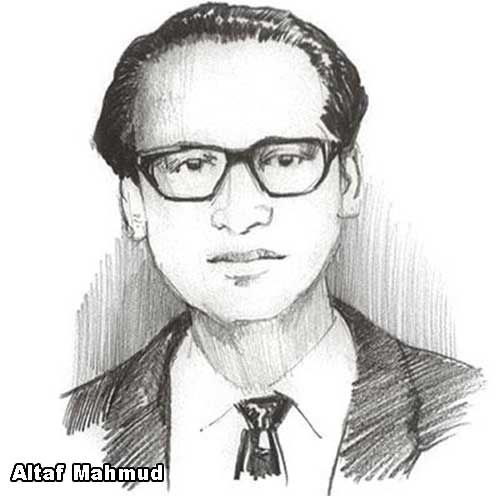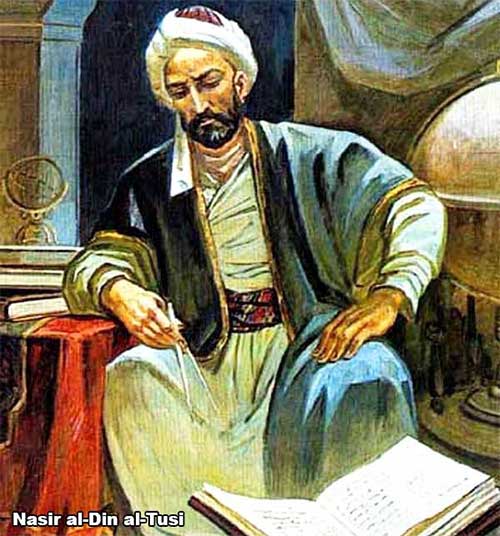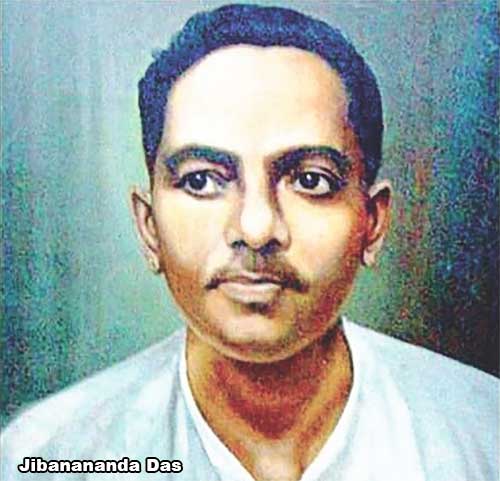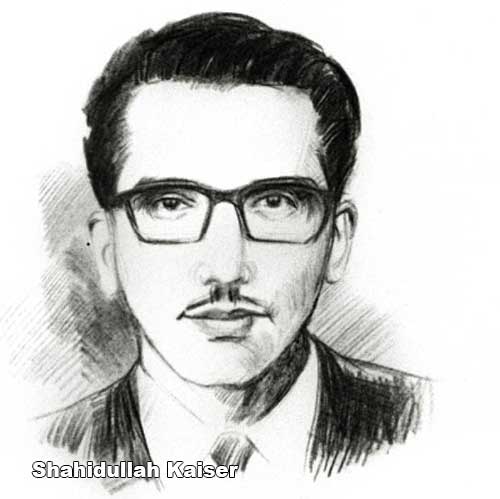
Altaf Mahmud is a name etched in the annals of Bangladesh's history. He is celebrated as a multifaceted personality who contributed indelibly to music, art, and activism. As a freedom fighter, a musician, and a martyr of the Liberation War of Bangladesh, Altaf Mahmud's legacy transcends the boundaries of his creative pursuits, making him a national icon. This article delves into the life and contributions of Altaf Mahmud, exploring how he became a symbol of resilience, patriotism, and cultural enrichment.
Early Life and Musical Aspirations
Born on December 23, 1933, in Sunamganj, Altaf Mahmud displayed an early inclination toward music. He pursued his passion relentlessly, eventually becoming a distinguished composer, lyricist, and singer. His music reflected the ethos of his time, with powerful compositions that resonated deeply with the struggles and aspirations of the people of Bangladesh.
Altaf Mahmud's journey into music was marked by his commitment to preserving and promoting Bengali culture. He received training in classical music and soon became a prominent figure in the country's burgeoning cultural landscape. His unique ability to blend traditional Bengali music with contemporary themes made him a favorite among listeners.
Contribution to Language Movement
One of Altaf Mahmud's most significant contributions was his involvement in the Language Movement in 1952. This movement aimed to establish Bengali as one of the state languages of Pakistan, opposing the imposition of Urdu as the sole state language. Mahmud's rendition of "Amar Bhaier Rokte Rangano," written by Abdul Gaffar Choudhury, became the unofficial anthem of the Language Movement. This song continues to inspire generations, embodying the spirit of linguistic and cultural pride.
Altaf Mahmud's role in the Language Movement extended beyond his musical contributions. He actively participated in protests and demonstrations, risking his life to uphold his people's linguistic rights. His dedication to this cause earned him widespread respect and admiration, cementing his place in the hearts of the Bengali people.
A Champion of Freedom and Justice
Altaf Mahmud's activism was not limited to the Language Movement. He was deeply committed to the broader struggle for justice and equality. His creative works often highlighted the plight of the oppressed, echoing the sentiments of leaders like Abdul Hamid Khan Bhashani The Voice of the Oppressed and Champion of the Poor. Mahmud sought to give the voiceless a voice through his art, using music to inspire change and foster unity.
During the Liberation War of 1971, Altaf Mahmud played a pivotal role in supporting the freedom fighters. He composed and performed patriotic songs that boosted morale and galvanized the people of Bangladesh in their quest for independence. His courage and unwavering commitment to the cause made him a target of the occupying forces, ultimately leading to his martyrdom.
Martyrdom and Legacy
In August 1971, Altaf Mahmud was captured by the Pakistani military and subsequently tortured and killed. His sacrifice underscored his dedication to the ideals of freedom and justice, solidifying his status as a national hero. Mahmud's untimely death was a significant loss for Bangladesh, but his legacy lives on through his music, art, and the enduring impact of his activism.
Altaf Mahmud's contributions have been recognized and celebrated in various ways. His compositions remain a staple of Bengali cultural heritage, and his life story inspires artists, activists, and patriots. Institutions, awards, and events have been established in his honor, ensuring his memory is preserved for future generations.
The Cultural and Historical Impact
The life and work of Altaf Mahmud hold immense cultural and historical significance. His music enriched the cultural fabric of Bangladesh and played a crucial role in shaping the country's identity. As a freedom fighter, he exemplified the spirit of resilience and sacrifice that defined the Liberation War. His artistic contributions continue to serve as a source of inspiration and pride for the people of Bangladesh.
Altaf Mahmud's influence extends beyond the realm of music and activism. His story highlights the power of art as a tool for social change and the importance of preserving cultural heritage in the face of adversity. By celebrating his life and contributions, we honor the ideals he stood for and reaffirm our commitment to freedom, justice, and equality.
Remembering Altaf Mahmud Today
In today's world, where cultural identity and social justice remain pressing issues, Altaf Mahmud's legacy is more relevant than ever. His life reminds us of the importance of standing up for one's beliefs and using creativity as a force for good. As we reflect on his contributions, we are reminded of the enduring power of music, art, and activism to inspire change and foster unity.
Altaf Mahmud's story is a testament to the resilience of the human spirit and the transformative power of art. Keeping his memory alive ensures that his contributions inspire and guide us in pursuing a more just and equitable world. His legacy is a source of pride for Bangladesh and a beacon of hope for all who strive for a better future.
Altaf Mahmud A Name That Resounds Through History
The name Altaf Mahmud resonates deeply in Bangladesh's cultural and historical narrative. His life blended creativity, activism, and patriotism, leaving an enduring impact on the nation and its people. Through his music and unwavering commitment to justice, Mahmud carved a niche for himself as one of the most beloved figures in Bangladesh's history.
As we commemorate his contributions, let us also reflect on the values he stood for and strive to uphold them in our own lives. Altaf Mahmud's legacy is a powerful reminder of the potential of art to inspire change and the importance of standing firm in the face of adversity. In honoring his memory, we celebrate the indomitable spirit of Bangladesh and the enduring power of creativity and activism to shape a better future.
#AltafMahmud #Bangladesh #LiberationWar



